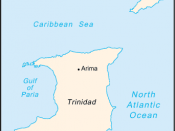Is there an independent judiciary in the Commonwealth Caribbean? The answer for this question is 'yes'. First we define an independent judiciary. The independence of the judiciary refers to the constitutional arrangements which have been put in place to certify that the judiciary, as an institution, is independent of all those who might wish to wield influences over or control over it. Next, we state the countries in the Commonwealth Caribbean and they are twelve independent countries:- Antigua and Barbuda, the Bahamas, Barbados, Belize, Dominica, Grenada, Guyana, Jamaica, St. Lucia, St. Kitts-Nevis, St. Vincent and the Grenadines, and Trinidad and Tobago.
In the Commonwealth Caribbean Constitutions, mechanisms have been put in place to perimeter the direct participation of politicians in the selection of judges. The independent appointment process of a judge is done by the amalgamation of the Head of State (the President or Governor General) and an independently appointed Judicial and Legal Service Commission.
In various countries of the world, judges are chosen by members of the state for example, Barbados. For present proposals for appointment of the members of the Caribbean Court of Appeal you must have a President of the Court by the Heads of Government.
For instance, The Constitution of Trinidad and Tobago states that the Chief Justice, who is also the President of the Court of Appeal, shall be appointed by the President of the Republic after consultation with the Prime Minister and the Leader of the Opposition, while in the Constitution of Co-operative Republic of Guyana contains similar provisions: both the Chancellor, who is President of the Court of Appeal of that country, and the Chief Justice are appointed by the President of the Republic after he was consulted the Minority leader. The Justices of Appeal and Puisne Judges of both republics are chosen...


